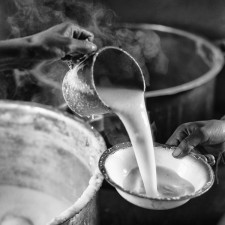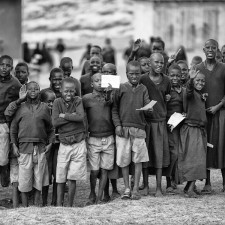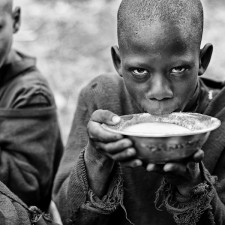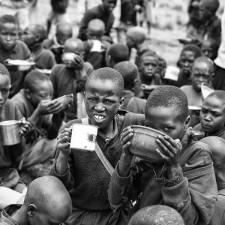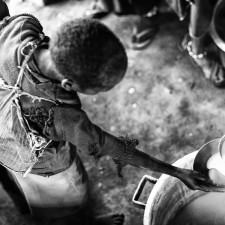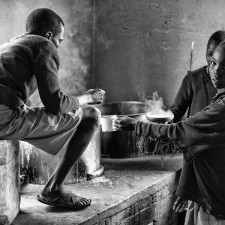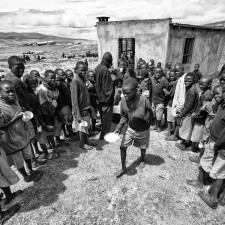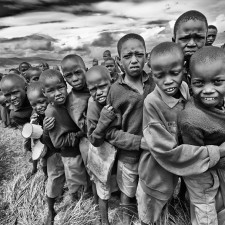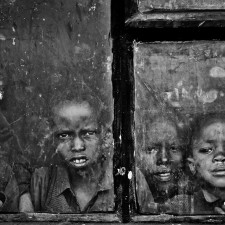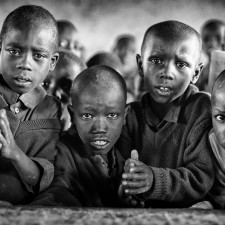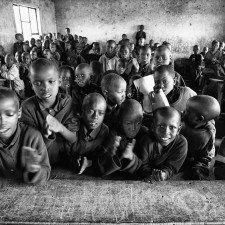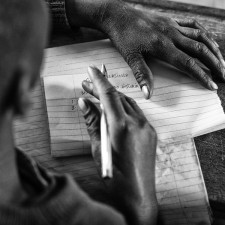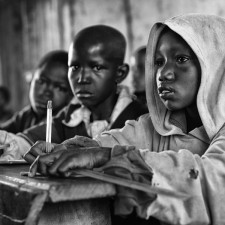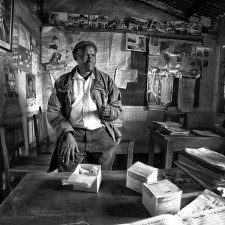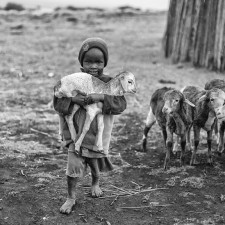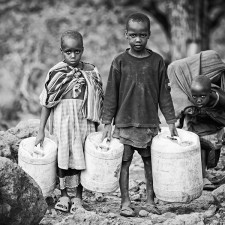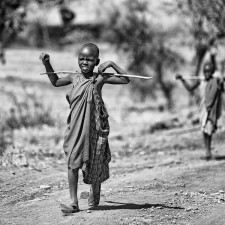Goran started to regard photography as a potential professional pursuit back in 2009, initially through wedding and special events photography, as well as portraiture for artistic portfolios. Even so, he still found himself gravitating toward documentary photography, which he finds to be his main aspiration and ambition.
During those few years, Goran practiced and technically improved his photography skills during trips to New York and Barcelona, where he spent weeks documenting the lives of Harlem’s homeless and beggars and street life in the bohemian barrios of the Catalan capital.
At the beginning of 2011 he joined a volunteer humanitarian mission with an aid association ‘Kolajna Ljubavi’, for relief work in the tribes of National Park Ngorongoro in Tanzania. For the duration of the mission and volunteer contribution to the orphanages, schools and various tribal visits, he very effectively captured the compelling features and mannerisms of the Maasai. He returned from that journey with valuable material, which he formatted and presented at a fundraising exhibit, the proceeds of which he directed towards the people that received him again on his following visit at the end of the year. As a return visitor, the natives were much more open to him, offering warm hospitality and an exclusive opportunity that allowed him to participate in some remarkable events closed to outsiders. Thus, he was able to document these momentous circumstances as an honourable guest.
Everyday lives of marginalized groups in the big cities of Ecuador, as well as traditional merchants, peasants, and cattle farmers of Andean villages, indigenous settlers of the Amazon, and a bittersweet existence of Brazilian favela slum dwellers are subjects which he focused on in 2012, enhancing his portfolio as a documentary photographer. In January 2013 he made an interesting Photo-story about the southern nations in Ethiopia. His inspirations and stimulus come from researching and following the trends in photojournalism, as well as his determination to focus and devote his time and skills exclusively to photo-reporting.
BEYOND ORDINARY
“When you know better, you do better.”
(Maya Angelou)
My second trip to Tanzania resulted in a visit to a small village Bulati. I was accompanied by a missionary Tomislav Mesic. We went to a primary school in Bulati and that day will always be firmly engraved into my mind. We went to a village school which consists of three shabby buildings: a small classroom without electricity, a staff room and a kitchen. As soon as you step into the classroom, the murmur stops and all eyes are set on you. Those eyes are the silent witnesses of the life in Tanzania.
Tanzanian regions are mostly rural and farming is the one and only occupation in those areas. Growing crops and cattle breeding are their only paths toward making ends meet. Due to the fact that education is not compulsory in Tanzania, parents leave their children at home therefore children have to work and help their families. Those children run different kind of errands for their families. Some of them become shepherds at the age of six while others bring water and chop wood.
Those who go to school sit in a dank classroom and patiently listen to their teacher. There are few desks in the classroom and 5-6 pupils use the same desk. The walls are covered with posters and old-fashioned didactic photos. Most of them have never seen a bus or a train; they can only see them on those posters. Tanzanian children are hardworking and curious about the world around them. Each day they press their pens to paper and they try to learn something. However, their favourite part of the day is the time for lunch. When the lesson is over they press against the window and they look outside. Suddenly, hundreds of them run out of classroom to stand in line for their portion of corn soup. Every day they eat the same meal and the saddest part of the story is the fact that too many children go to school only because of that one meal. They have nothing to eat and all they dream of is a decent meal. Hunger for knowledge is replaced by true hunger. Have you ever heard of this before? Their ordinary day is a never ending fight for survival. Worn out school uniforms are children’s only item of clothing but they proudly wear their green sweaters which are the only symbol of the education process in their village.
In short, an average tuition fee in Tanzania is $12 but the recent studies have shown that primary schools can spend only $5.30 on each pupil. This is how you get a small shabby classroom which does not offer a good quality learning environment. Furthermore, their homes are not conducive for doing homework and they often do not have time to do it once they come home. Furthermore, in Bulati, there are 8 teachers to 600 pupils. Tanzanian schools have ratio of one teacher to 66 pupils. In addition, their nutrition is based solely on crops and they do not eat meat, vegetables or fruit for lunch which means that their meals does not meet the recommended nutrition standards for food in schools. Something should be done to help them because those children need to know that they are no ordinary children. They live their lives to the best of their abilities and that is beyond ordinary. Those children are worthy of our admiration. [Official Website]



